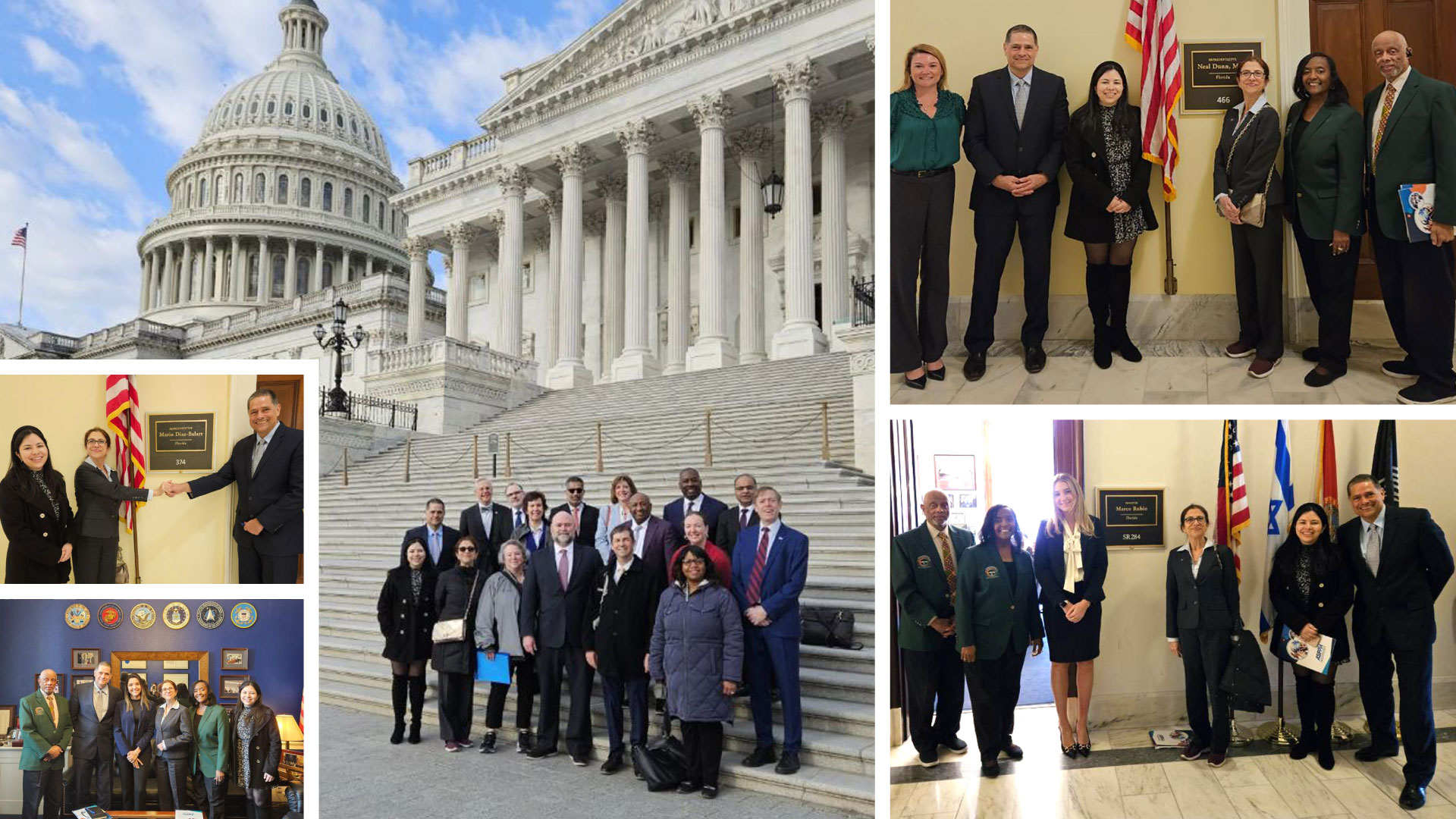Over 30 deans and directors participated in the annual Capitol Hill Day, organized by the Association of Schools and Programs of Public Health (ASPPH). This pivotal gathering engages program directors and leaders in impactful legislative advocacy on Capitol Hill. This year's Hill Day, held in March, focused on securing increased appropriations for fiscal year 2025 (FY25) to ensure vital funding for public health initiatives.
Representatives from the Department of Public Health Sciences collaborated with leaders from Florida A&M University (FAMU) to amplify their collective voice on Capitol Hill. Together, they met with key legislators, including Representative Neal Dunn, Senator Marco Rubio, and Representative Mario Diaz-Balart, to discuss critical issues related to public health funding and policies.
These funds are crucial for supporting public health programs, research, and initiatives aimed at improving the overall health and well-being of communities. The team emphasized the importance of sustained and enhanced funding to address current and emerging public health challenges.
Key agencies and programs discussed included those within the Department of Health and Human Services, such as the Centers for Disease Control and Prevention, the National Institutes of Health, the Health Resources and Services Administration, the Agency for Healthcare Research and Quality, and the new National Hepatitis C Elimination Program.
In addition to advocating for appropriations, the team from the Department of Public Health Sciences and FAMU leadership highlighted the need for funding student loan forgiveness programs. They argued that such programs are essential to attract and retain talented individuals in the public health field. By alleviating the financial burden of student loans, more graduates would be encouraged to pursue careers in public health, thereby strengthening the workforce dedicated to safeguarding public health.
A notable success of ASPPH’s Hill Day was the inclusion of M.P.H. alumni from multiple universities, who played a significant role in advocating for legislative change. Their firsthand experiences and passion for public health issues added a powerful voice to the discussions, demonstrating the real-world impact of academic training on public health policy.
Collaboration with other universities in the state during Hill Day proved to be a vital component in activism efforts. By presenting a united front, the collective academic public health community made a more compelling case for increased funding and support for public health initiatives.
Following Hill Day, the Department of Public Health Sciences has continued its efforts to influence public health policy and funding. They have been actively engaging with stakeholders, including local and state policymakers, community organizations, and public health professionals, to further the goals discussed during Hill Day.
David J. Lee, Ph.D., professor and chair of the Department of Public Health Sciences, and Elahe Nezami, Ph.D., director of the online M.P.H. program, emphasize that legislative advocacy is a cornerstone of public health education, playing a crucial role in shaping policies that promote and protect community health.
"By engaging in legislative advocacy, our trainees will have the opportunity to influence laws and regulations that address social determinants of health, improve access to care, and ensure the allocation of resources for critical health programs," said Dr. Lee.
Dr. Nezami added, "This form of advocacy empowers communities by giving a voice to marginalized populations, ensuring that their health needs are considered. Recognizing its importance, we have been working to integrate advocacy into our online M.P.H. curriculum, equipping our students with the skills and knowledge to effectively engage with policymakers and drive meaningful health reforms."
The greatest impact of the event, as noted by Dr. Lee, has been to ensure that legislative advocacy becomes a key part of the education for learners as part of their responsibilities. "This is part of the practice of public health," he asserted.
By integrating advocacy into their curriculum and maintaining active engagement with policymakers, the department strives to foster a collaborative effort between policymakers, educators, and the public to achieve equitable health outcomes and enhance the overall well-being of society.
Written by Deycha Torres Hernández, published on June 25, 2024.





